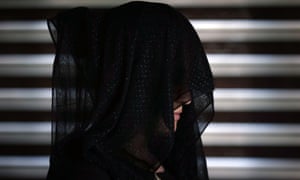
Campaigners have called on the British government to grant asylum to at least 100 women and girls who escaped after being kidnapped and raped by Islamic State militants in northern Iraq.
Isis fighters have abducted thousands of girls from ethnic minority communities in northern Iraq and forced them into sexual slavery since overrunning the area in 2014.
Although many hundreds have managed to escape or have been rescued, according to Kurdish regional authorities, they are often deeply traumatised and face uncertain futures on returning to their communities.
Jacqueline Isaac, a lawyer and campaigner who works with escapees in refugee camps in northern Iraq, has called on Britain and other western countries to offer asylum and psychological support to 100 girls. “We’re not talking about letting in thousands of refugees, we’re talking about 100 young girls that need care that they may not be able to get there [in northern Iraq] because of lack of resources and the culture,” she said.
“It’s very hard for a girl there to get what she needs and thrive because of what she has been through. Even though the Kurdistan regional government and the locals are doing a great job to try to support them, there is still that culture that is ingrained in the society that says if you have been raped or lost your virginity, you don’t have as much value.”
Isaac said the majority of the girls were Yazidis, a religious minority that Isis had targeted in northern Iraq, but added that Christian, Shia Muslim and Turkmen girls had also been enslaved.
A UN report published in January said up to 3,500 people were currently being held as slaves in Isis-controlled territory in Iraq, the majority of them women and children. At least 18,000 civilians had been killed and more than 3.2 million displaced since January 2014, it said, describing the violence against civilians as “staggering”. Germany has taken in at least 1,100 formerly enslaved young women from northern Iraq as part of a project that offers them specialised psychological support when they arrive, Agence France-Presse reported last month. Prof Jan Ilhan Kizilhan, a German doctor working in Baden-Württemberg state, which financed the programme, told the agency he believed that 1,200 other women would benefit from similar programmes, not counting the numbers still in captivity.
Isaac told the Guardian that she had interviewed more than 100 escapees in Iraqand Germany about their experiences, ranging in age from nine to their early 20s. She said many had described witnessing family members being killed before they were bussed to locations where they had been categorised according to age, marital status and perceived attractiveness, before being allocated to different groups of fighters.
Isaac, an Egyptian-American who is the vice-president of humanitarian organisation Roads of Success, gave evidence last year to the US Congress on abuses against women in Iraq. The Republican-dominated House of Representatives voted unanimously in March to declare that Isis atrocities against Yazidis, Christians and other minority groups amounted to genocide.
This was followed by the US secretary of state, John Kerry, who said the group was “genocidal by self-proclamation, by ideology and by actions, in what it says, in what believes and in what it does”.
A spokesman for the Home Office said the British government was “at the forefront” of the humanitarian response to the crisis and had pledged £2.3bn to help refugees in the Middle East. He added that it was a longstanding government position that someone could not apply for asylum from outside the UK.
No comments:
Post a Comment